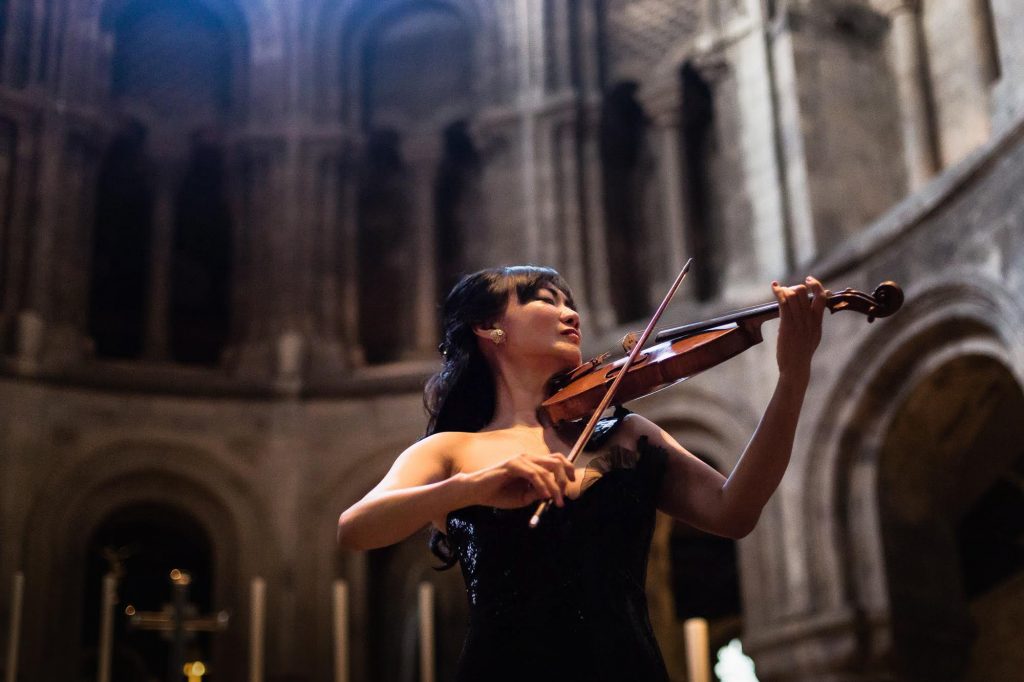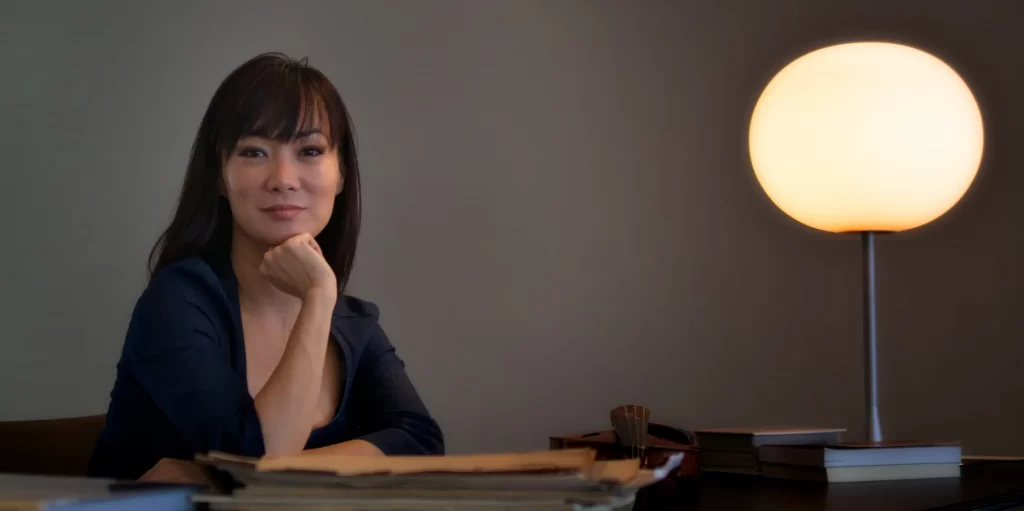Being ahead of her time.
An accomplished Singaporean violin soloist talks about how Asian women can succeed in the world of classical music.

Image by Vicky Flores, City of London Festival 2015
Siow Lee Chin waves the bow with a nimble wrist. You wouldn’t have guessed that she had nursed some broken bones back to health. As a world class concert violinist, the violin is Lee Chin’s voice – even more so than an object, the violin is her confidante.
Over the years that are filled with passion, patience, and perseverance, Lee Chin has mastered the art of producing the faintest whisper from her violin, tugging heartstrings of concert-goers all over the world.
I am enthralled. When Lee Chin’s rendition of Butterfly Lovers Concerto began, listeners were captivated. The audience heaves sighs of both joy and sorrow in synchrony as they listen to her bright melodies in major keys and melancholic cries in minor scales.
“Everyone’s circumstance is different and unique. Fundamentally, one must love what you do. Pursuing the creative arts must be a calling, there is no guaranteed success.”
The programme comprised the best of both worlds. It is an oriental favourite paired with Western classics, and conveyed universal themes of love and joy. A lay person would walk away with a renewed sense of hope.
In person, Lee Chin is undoubtedly an elegant and suave doyenne of the string instrument. Unsurprisingly, she is also the Professor of Violin at College of Charleston, School of the Arts. Her eyes lit up when I spoke with her about her passion during the interview.
“Being able to do what I love and help another person in their pursuit of the arts gives me tremendous satisfaction,” she chirps.
Doyenne: How would you describe your relationship with the violin?
Lee Chin: My violin is my voice. It allows me to sing exquisitely the musical language of each composer. It allows me to make the smallest whisper, a sweet nothing in the softest voice. The audience can feel the tenderness.

Image by Siow Yew Nam
D: Have you always wanted to be a violinist?
LC: When I was young, I wanted to be a ballerina. But that wouldn’t do, Dad had plans for me to be a violinist. Then I wanted to be a cellist. I loved the sound of the cello. Again, that wouldn’t do! So I ended up with the violin, and have been with it ever since!
D: How can young Asian women succeed in the arts?
LC: Men have their old boys club. For women, old girls club don’t sound so good [chuckles]. But it is important to have a network you can tap on.
As the saying goes, it takes a village to raise a child. There is so much more to performance than just playing on stage. It takes a whole network of support to see an artist from the practice room to the concert hall!
Start with those you know: your peers and professors. Seek advice, keep in touch with your alma mater and colleagues. Don’t be shy to articulate your passion. You might just encounter someone who shares your interest and is willing to champion your cause!
D: What would you like to be known for?
LC: I am humbled and gratified to be one of the first Singaporeans to make a career as a violin soloist. I hope that my journey will inspire people to go after things they are passionate about. Live their dreams. Anything is possible if you work hard!
“You must want to pursue it wholeheartedly and not look back. With passion, patience and perseverance, the sky’s the limit.”
D: Do you think there are enough opportunities for Asian women to succeed in the world of classical music?
LC: When I was a student in the U.S., the running joke was that in order to succeed in music, you had to be male, Jewish, and gay. I’m female, Chinese and straight – the odds were heavily stacked against me!
Living in America also taught me to be proactive. I learnt to create opportunities for myself. Some of my biggest gigs came from my own efforts.
My advice to all aspiring musicians is to not wait for things to happen. Everyone’s circumstance is different and unique. Fundamentally, one must love what you do. Pursuing the creative arts must be a calling, there is no guaranteed success.
You must love it so much that life becomes unbearable without it. You must want to pursue it wholeheartedly and not look back. With passion, patience and perseverance, the sky’s the limit.
D: Who was or still is your mentor?
LC: My dad. He is my hero. As a child growing up during World War II, Dad was bayoneted by the Japanese. He survived despite being left for dead. Coming from a non-musical family, he taught himself to play the violin and became a pioneer violinist in the Singapore Symphony Orchestra!
My dad was also my first violin teacher, until I won a place to study at the Curtis Institute in America. When I close my eyes, I still hear his encouragement. His belief in me gave me the confidence to become a violinist.
D: If your 25-year-old self could see you now, what would she think?
LC: My goodness, hopefully she sees me growing (and not in the waistline), learning and contributing!
To share her musical journey and inspire young people, Lee Chin published a memoir, From Clementi to Carnegie: The Journey of Singaporean Violinist Siow Lee Chin.




